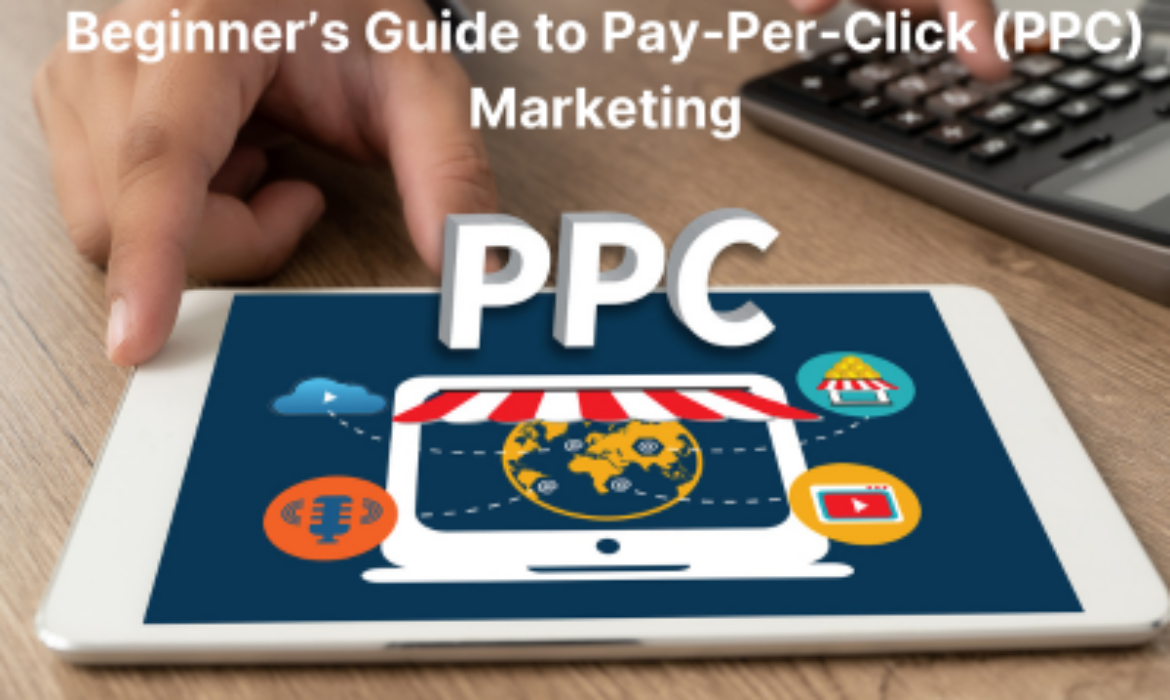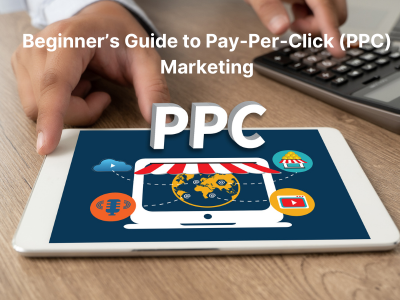
Pay-Per-Click (PPC) marketing is one of the most effective strategies in digital marketing, enabling businesses to drive targeted traffic to their websites. If you’re wondering what is PPC, or how it works, this blog will provide you with an in-depth introduction to PPC and its significance in the digital landscape.
What is PPC in Digital Marketing?
PPC stands for Pay-Per-Click, a model of digital advertising where advertisers pay a fee each time someone clicks on their ad. Essentially, you’re buying visits to your website rather than earning them organically. PPC in digital marketing is widely used across platforms like Google Ads, Bing Ads, and social media channels.
How PPC Advertising Works?

- Bidding for Keywords: Advertisers bid on specific keywords relevant to their products or services. For example, if you’re a shoe retailer, you might bid on keywords like “buy running shoes online.”
- Ad Placement: Ads appear on search engine results pages (SERPs) or other platforms based on the relevance of the ad and the bid amount.
- Cost Per Click: You only pay when a user clicks on your ad. The cost per click varies depending on the competitiveness of the keyword.
- Ad Quality and Relevance: Search engines like Google use metrics such as Quality Score to determine the placement of PPC ads. Ads with higher relevance and better user experience are prioritized.
Pros and Cons of PPC Advertising
Pros of PPC Ads:
- Immediate Results: PPC campaigns can generate traffic and leads as soon as they go live, making it ideal for time-sensitive promotions.
- Highly Targeted: With PPC, you can target users based on location, age, gender, interests, and even their search behavior.
- Budget Control: You have full control over how much you spend daily, monthly, or per campaign.
- Measurable Performance: Platforms like Google Ads offer detailed analytics to track clicks, conversions, and ROI.
- Flexibility: PPC ads can be paused, updated, or scaled at any time to adjust to changing goals or strategies.
- Increased Visibility: Ads appear at the top of search results, ensuring prominent placement for high-priority keywords.
Cons of PPC Ads:
- Costly for Competitive Niches: Highly competitive keywords can drive up costs significantly, making it less viable for small budgets.
- Requires Expertise: Poorly managed campaigns can lead to wasted budgets with little to no returns.
- Short-Term Impact: Once your budget runs out, the traffic and leads stop, unlike SEO, which offers long-term results.
- Click Fraud Risks: In some cases, competitors or bots may click on your ads maliciously, wasting ad spend.
- Constant Monitoring: PPC campaigns need regular optimization to maintain performance and avoid overspending.
Role of a PPC Specialist
A PPC specialist is crucial for managing and optimizing pay-per-click campaigns. Their responsibilities include:
- Conducting keyword research.
- Designing compelling ad copies.
- Monitoring campaign performance.
- Adjusting bids to maximize ROI.
- Analyzing data to refine strategies.
Hiring a skilled PPC specialist can significantly improve the effectiveness of your campaigns.
Introduction to PPC for Beginners
If you’re new to PPC marketing, start by defining your goals. Whether you aim to generate leads, increase sales, or boost brand awareness, PPC ads can be tailored to meet specific objectives. Platforms like Google Ads provide step-by-step guides, making it easier to launch your first campaign.
Why PPC Matters in Digital Marketing?
In today’s competitive online environment, businesses cannot afford to ignore PPC in digital marketing. It’s a proven strategy to drive high-intent traffic, increase brand exposure, and achieve measurable outcomes. Whether you’re a small business owner or a large enterprise, pay-per-click advertising offers opportunities to scale your online presence effectively.
By understanding what PPC is and weighing its pros and cons, you can create impactful campaigns that resonate with your audience and achieve your business goals.





